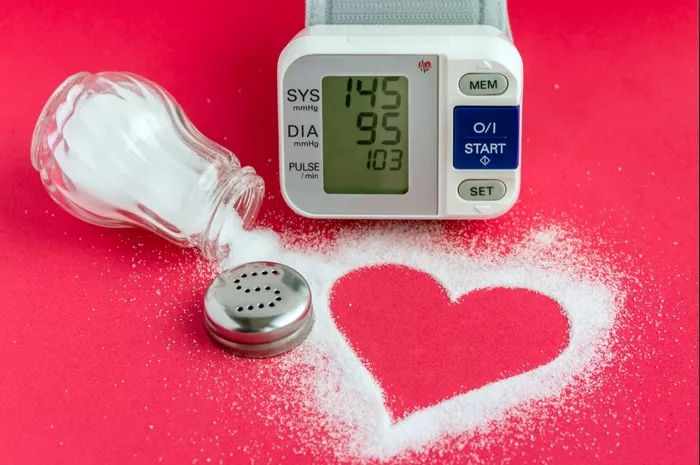Hypertension, commonly known as high blood pressure, is a prevalent health condition affecting millions of people worldwide. It is a major risk factor for cardiovascular diseases such as heart attacks, strokes, and heart failure. While there are several factors that contribute to the development of hypertension, one significant aspect that has garnered attention is the role of sodium in its causation. In this article, we will delve into the mechanisms by which sodium contributes to hypertension and explore strategies to manage sodium intake for better blood pressure control.
Understanding Sodium and Blood Pressure
Sodium is an essential mineral that plays a crucial role in maintaining fluid balance, nerve function, and muscle contraction in the body. It is primarily obtained from dietary sources, with common sources including table salt (sodium chloride), processed foods, canned goods, and restaurant meals. While sodium is necessary for bodily functions, excessive consumption can lead to adverse health effects, particularly regarding blood pressure regulation.
The Renin-Angiotensin-Aldosterone System (RAAS)
One of the key mechanisms through which sodium influences blood pressure is the activation of the renin-angiotensin-aldosterone system (RAAS). When sodium levels in the blood increase, specialized cells in the kidneys detect this change and release the enzyme renin. Renin then catalyzes the conversion of angiotensinogen (produced by the liver) into angiotensin I.
Angiotensin I is further converted into angiotensin II by the angiotensin-converting enzyme (ACE), primarily found in the lungs. Angiotensin II is a potent vasoconstrictor, meaning it causes blood vessels to narrow, leading to increased blood pressure. Additionally, angiotensin II stimulates the release of aldosterone from the adrenal glands.
Aldosterone and Sodium Retention
Aldosterone is a hormone that acts on the kidneys to promote sodium reabsorption. When aldosterone levels rise, the kidneys retain more sodium, leading to an increase in extracellular fluid volume. This expansion of fluid volume puts additional strain on the blood vessels, resulting in elevated blood pressure.
Endothelial Dysfunction
High sodium intake has also been linked to endothelial dysfunction, which refers to impaired functioning of the endothelium, the inner lining of blood vessels. Endothelial dysfunction is characterized by reduced nitric oxide production, increased oxidative stress, and inflammation within the blood vessel walls. These changes contribute to vasoconstriction, vascular stiffness, and reduced vasodilation, all of which can elevate blood pressure.
Sympathetic Nervous System Activation
Another pathway through which sodium may influence blood pressure is by activating the sympathetic nervous system. Excessive sodium intake has been associated with increased sympathetic nerve activity, leading to heightened vasoconstriction and heart rate. This sympathetic overactivity contributes to sustained elevation of blood pressure over time.
Genetic Factors and Salt Sensitivity
It is important to note that individuals vary in their sensitivity to the blood pressure-raising effects of sodium. Some people are more “salt-sensitive” than others, meaning their blood pressure responds more significantly to changes in sodium intake. Genetic factors, such as variations in genes related to sodium transport and metabolism, play a role in determining salt sensitivity.
Clinical Implications and Management Strategies
Given the established link between sodium intake and hypertension, managing sodium consumption is a critical aspect of blood pressure control. The Dietary Approaches to Stop Hypertension (DASH) diet, recommended by health organizations, emphasizes reducing sodium intake while increasing potassium-rich foods, fruits, vegetables, and whole grains.
Healthcare providers often advise individuals with hypertension to limit their daily sodium intake to around 1,500 to 2,300 milligrams, depending on individual health status. This typically involves reducing the consumption of processed foods, fast foods, salty snacks, and condiments high in sodium.
In addition to dietary modifications, lifestyle changes such as regular exercise, weight management, stress reduction, and moderation of alcohol intake can complement sodium reduction efforts in managing hypertension.
Conclusion
Sodium plays a significant role in the development and exacerbation of hypertension through various mechanisms, including activation of the RAAS, aldosterone-mediated sodium retention, endothelial dysfunction, sympathetic nervous system activation, and genetic salt sensitivity. Understanding these mechanisms underscores the importance of dietary and lifestyle interventions in managing blood pressure and reducing the risk of cardiovascular complications associated with hypertension. By adopting a balanced approach to sodium intake and implementing comprehensive lifestyle changes, individuals can take proactive steps towards better blood pressure control and overall cardiovascular health.

